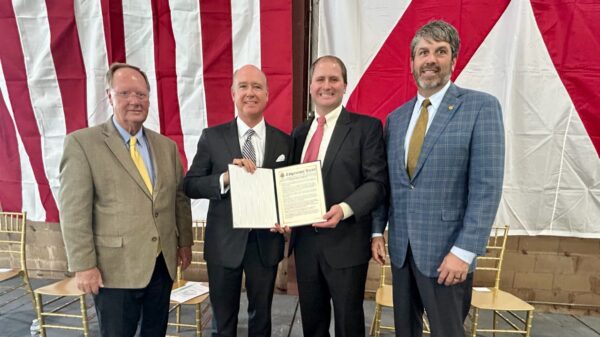County work could begin this summer on broadband projects funded by American Rescue Plan Act (ARPA) dollars — but only if during the special session, Alabama legislators approve a proposed broadband amendment to the State Constitution.
Under Alabama’s Constitution, a statewide vote on a proposed constitutional amendment can take place three months after the end of a legislative session. This means if the Legislature passes the proposed broadband amendment during the special session, voters will be able to consider its approval during the upcoming Primary Election.
Should counties be granted the statutory authority to invest in broadband projects, the Association of County Commissions of Alabama (ACCA) has plans to hit the ground running to help counties authorize investments as quickly as possible.
“Passing this amendment during the special session is critical as we work to expand internet access statewide by empowering counties to work with broadband providers,” said ACCA Executive Director Sonny Brasfield. “Because the current constitution has a specific provision prohibiting local governments from providing a ‘thing of value’ to companies, counties cannot use their federal funds to support broadband projects without this important amendment.”
Sen. Clay Scofield and Rep. Randall Shedd, who co-chair the state’s broadband expansion authority, are sponsoring the proposed amendment, which applies only to the expenditure of federal dollars and any state funds provided to local governments specifically for broadband expansion. The ARPA program enacted by Congress in early 2021 encourages counties and cities to emphasize funding for projects in areas without access or with service that does not meet minimum download speeds. By allowing recipients of ARPA dollars to match funds with broadband providers, the federal program encourages private investment in areas that will otherwise wait years before receiving access.
“The proposed allocation of this one-time ARPA funding has the potential to largely impact the future of our state,” Scofield said. “It will not only provide aid and support for pandemic recovery but also allow us to invest in projects that will enhance the quality of life for Alabamians for generations to come. Specifically looking at the money that will be invested in the broadband expansion process, there will be a tremendous opportunity to utilize innovative technology and resources to develop this vital digital infrastructure, ultimately strengthening our economy, producing more jobs and allowing Alabama to lead in a modern, 21st century economy.
“Passing this amendment is imperative to the success of the work that has occurred for many years and for the decades of work that lies ahead. Our goal is to deliver high-speed internet services to all four corners of the state — urban and rural. This amendment would greatly help us to achieve that goal by urging counties and cities to highlight funding for projects in those areas. In order to obtain these results and get it right, we must pass this proposed amendment and send it to the people of Alabama for a vote.”
Shedd echoed Scofield’s comments, adding, “I am hopeful we can get this important amendment passed during the special session so high-speed internet can get to the people of Alabama, especially in the more rural areas.”
In December, Alabama’s 67 counties unanimously approved broadband expansion to the underserved areas of the state as a legislative priority for 2022. The priority to expand broadband access is one of many priorities this year for counties outlined in the Alabama County Platform.
The Association of County Commissions of Alabama is a statewide organization speaking for all 67 counties with ONE Voice. It promotes improved county government services in Alabama, offers educational programs for county officials and their staff members, administers insurance programs for county governments and employees, offers legal advice, and represents the interests of county government before state and federal organizations and agencies.





















































